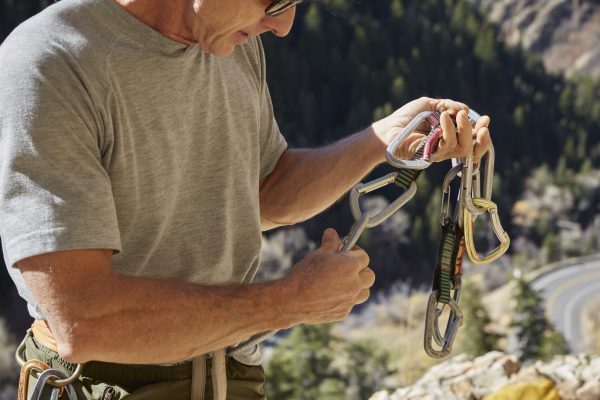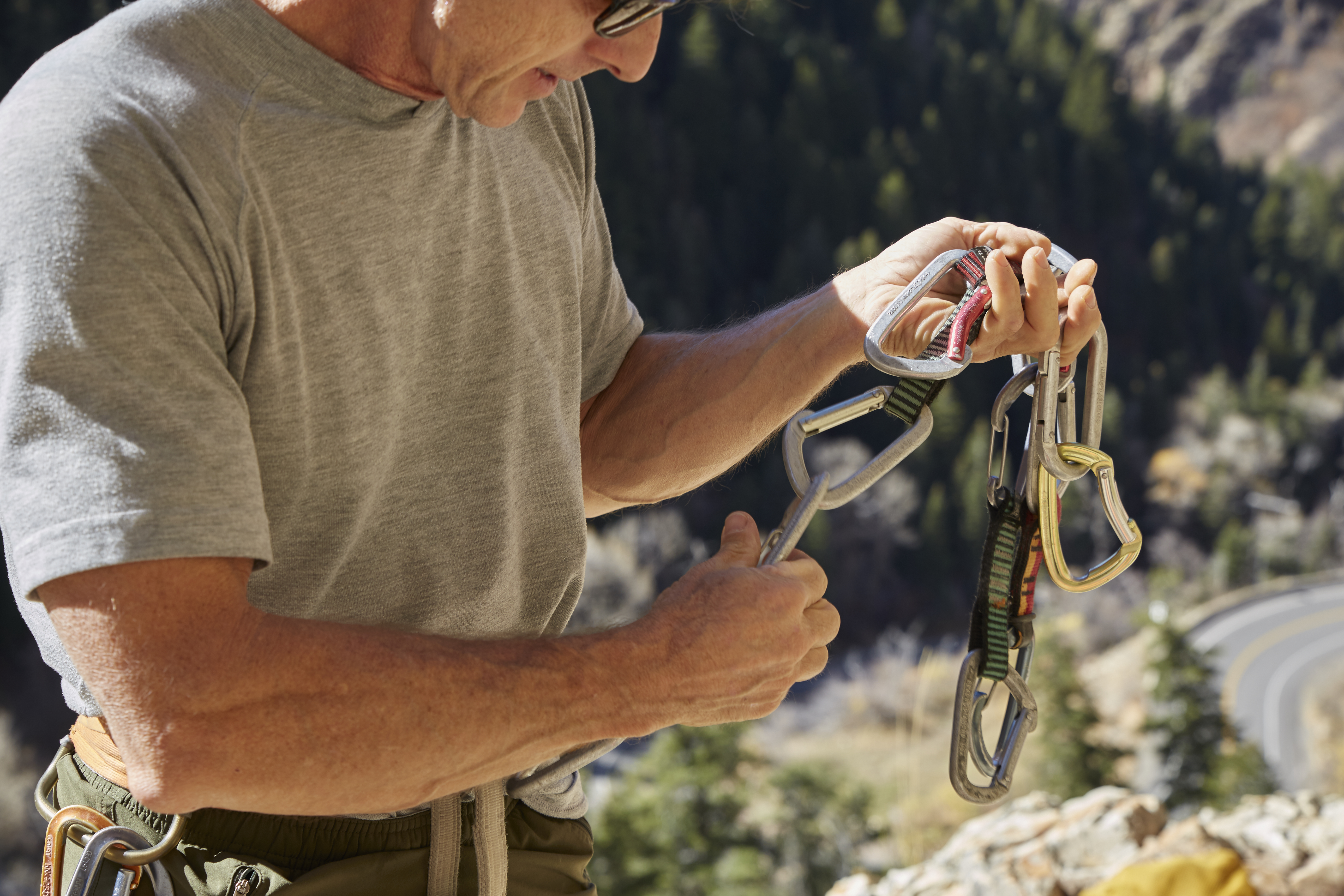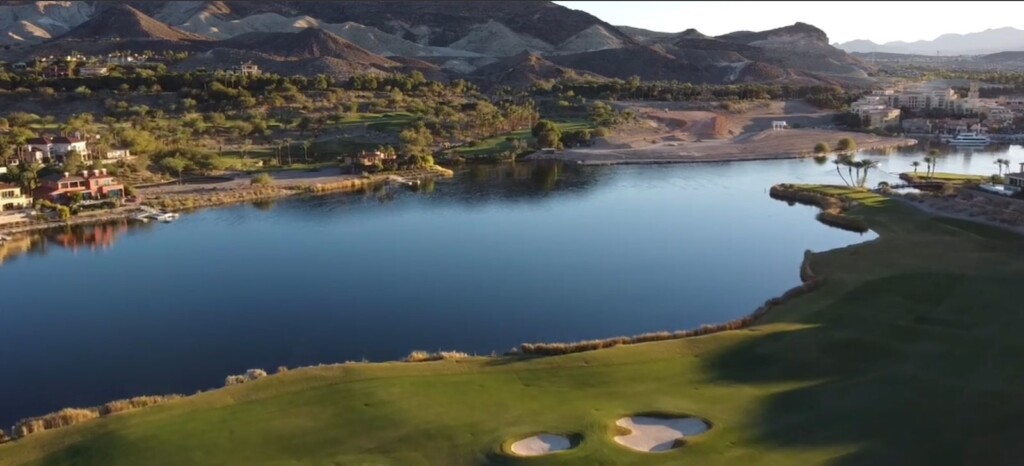Realms of Inquiry, a private school in Salt Lake City, Utah, offers students a view past the walls of the classroom by utilizing climbing and nature to prepare them for future success.

It is 12:30 in the afternoon on a Monday and I’m waiting at the base of a popular climbing crag up Big Cottonwood Canyon known as The S-curves. For autumn, it’s unseasonably warm. The sky’s a deep shade of blue, and there isn’t a cloud in sight. I see a group of kids, and I can’t help but think about when I was their age. I would have been stuck between the plaster-white walls of a classroom.
But these fortunate kids are students at Realms of Inquiry (Realms for short), and are being led by their English and math teacher, Mike Kaserman.
Realms employs a modality far removed from that of public schools: that is, they teach their students to assume responsibility for their own learning, for themselves, and at their own pace, by providing a hands-on environment that connects the classroom with the panoramic world beyond. One way this is achieved is through climbing.
Mike has spent his entire life outdoors. He started climbing 30 years ago under the tutelage of Yosemite climbing pioneer, Chuck Pratt. Aside from being a local Utah climber and professional climbing guide, Mike has been a teacher at an array of schools over the years. But when he had the chance to join the team at Realms, the decision was no decision at all. The school’s philosophy aligned perfectly with his own.
Their approach is an experiential one. Realms’ students go on international trips, experiencing different cultures and customs. They also go on week-long camping trips, and regularly go climbing as part of their collaborative curricula.
With the ever-growing disparity between today’s youth and nature, according to a recent report from the Kaiser Family Foundation, eight-to-18-year-olds are now spending more than 53 hours a week with their faces bathed in the harsh-blue light of a screen. This excludes technologies now ubiquitous in most schools, and Mike thinks this sort of approach is extremely important, not only to get kids to reconnect with nature, but to learn something vital for future success, regardless of the path they choose.
When I ask him what this is, his reply is almost automatic: “Intelligent risk taking.” Any climber is likely to tell you that climbing, the very essence of it at least, is far more than mere sport or recreation. It is pure endeavor, in every sense of the word. Mentally and physically, climbing takes every measure from you, but in the end it gives back, and the rewards are countless.
“The first time I got up a technical peak,” Mike says, “suddenly, there was the infinite world of the mountains. I never felt so big and so small at the same time.” His success, in part, was due to learning how to appropriately assess risk. It’s a lesson he’s been able to carry with him everywhere, whether in the mountains or not.
But intelligent risk taking also means knowing how to cope with failure. This is something else that Realms, and Mike, strive to teach—that failure is a good thing—that it builds confidence.
As I talk to each of the students separately, they all echo this sentiment.
 “Of course there is the fun part,” 15-year-old student, Ein, says, “but for me, I have realized that it [climbing] helps build my confidence… it feels like an accomplishment to me.”
“Of course there is the fun part,” 15-year-old student, Ein, says, “but for me, I have realized that it [climbing] helps build my confidence… it feels like an accomplishment to me.”
I pull sixth-grader, Calipso, aside after she fails to get past a certain section of rock and ask her what climbing has taught her thus far. She answers while smiling. “I’ve been climbing for less than a year, but what I’ve learned is that if you make mistakes and learn from them, then you will do even better next time.”
And Jayden, 15, who has the most climbing experience of the group, says, “Climbing, more than anything, has taught me responsibility. You have to remember to bring the right gear, and take care of it, but more importantly,” he pauses seriously, “If someone falls, and you don’t catch them, you have to be responsible for that. You have to accept that something like that was your fault. When you are responsible, you can’t make excuses. You have to be accountable for your actions.”
Mike later tells me that Realms is good at teaching personal accountability, failure, and how to learn from it, not only in the outdoors, whether it’s climbing or hiking, but in the classroom as well.
“Failure is part of the process of doing something well. If they don’t figure out the conclusion on their own, you’ve done it wrong,” he says. 






